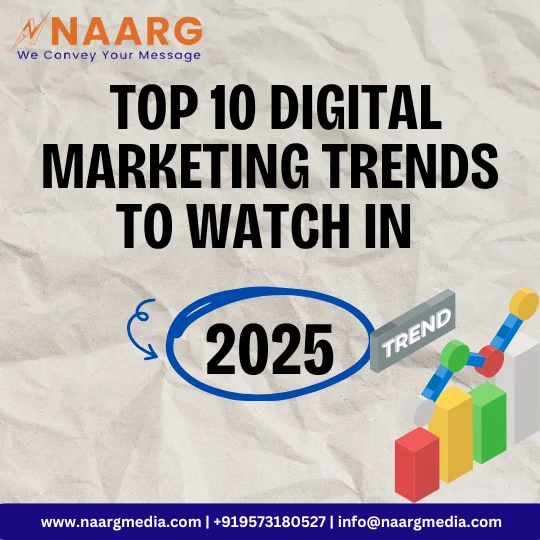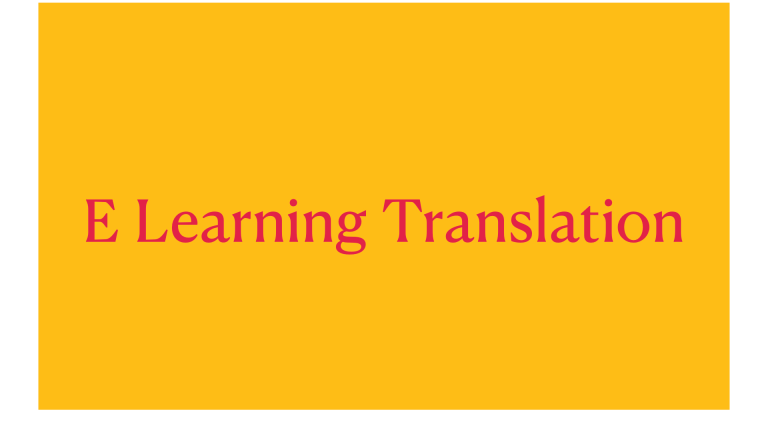As we enter 2025, digital marketing is brimming with innovation and transformation. Emerging technologies like AI-driven personalization, voice search optimization, and immersive experiences through augmented and virtual reality are taking center stage.
Sustainability-focused marketing and the rise of the creator economy are reshaping brand strategies, while advanced analytics and blockchain technology are enhancing transparency and trust.
Social commerce continues to grow, blending shopping with social engagement, and interactive content is making customer engagement more dynamic than ever. These digital marketing trends reshape how brands connect with audiences and set the stage for a more personalized, interactive, and value-driven digital future.
Stay ahead of the curve by embracing these trends to captivate your audience and fuel business growth.
Let’s have a look at the top 10 digital marketing trends that will rule the year 2025.

Importance of Staying Updated with Digital Marketing Trends
Staying updated with digital marketing trends is essential in today’s fast-evolving landscape, where consumer behavior and technology constantly shift. Embracing the latest trends allows businesses to connect with their audiences more effectively, optimize campaigns, and maintain a competitive edge.
For instance, according to a recent Gartner study, companies that adopt AI-driven marketing strategies experience a 30% increase in customer satisfaction.
By staying ahead of the curve, marketers can anticipate changes, leverage emerging tools, and craft strategies that resonate with modern consumers, ensuring sustained growth and relevance in a crowded digital space.
Top 10 Digital Marketing Trends
Let’s have a look at some of the top 10 digital marketing trends.
1. AI-Driven Marketing
Artificial Intelligence (AI) is revolutionizing how marketers analyze data, predict consumer behavior, and deliver personalized experiences. AI tools can automate repetitive tasks, optimize ad placements, and provide hyper-targeted content.
For example, AI-powered chatbots are now enhancing customer support by offering real-time assistance.
2. Voice Search Optimization
With the rise of smart speakers and voice assistants like Alexa and Siri, optimizing for voice search is no longer optional.
Consumers are increasingly using conversational queries, and marketers must adapt by focusing on long-tail keywords and natural language optimization.
3. Augmented Reality (AR) and Virtual Reality (VR)
AR and VR are making marketing campaigns more interactive and immersive.
From virtual try-ons for fashion and beauty products to virtual showrooms for real estate, these technologies are transforming how consumers interact with brands online.
4. Sustainability-Focused Marketing
Consumers are prioritizing brands that align with their values, especially those focused on sustainability.
Green marketing strategies, such as highlighting eco-friendly practices or products, are gaining traction and driving brand loyalty.
5. The Creator Economy
Influencer marketing is evolving, with creators taking the lead in building communities and engaging audiences.
Brands are now collaborating with micro and nano-influencers to connect with niche markets authentically.
6. Interactive and Shoppable Content
Content is becoming more engaging, with shoppable posts and videos enabling consumers to purchase directly from social media.
Interactive elements like polls, quizzes, and live streams are driving engagement and boosting conversion rates.
7. Advanced Analytics and Predictive Data
Data-driven decision-making is becoming more sophisticated with advanced analytics.
Predictive data helps marketers anticipate trends, understand consumer needs, and refine strategies for better ROI.
8. Blockchain for Transparency
Blockchain technology is enhancing transparency in digital advertising by preventing fraud and ensuring authenticity.
It provides secure and traceable transactions, helping build trust with customers.
9. Social Commerce
Social media platforms are doubling as e-commerce hubs.
Features like Instagram Shops and Facebook Marketplace are turning social platforms into full-fledged shopping destinations, making it easier for brands to connect with their audiences.
10. Hyper-Personalization
Generic messaging is no longer effective.
Hyper-personalization uses real-time data to deliver highly relevant content tailored to individual consumer preferences, enhancing engagement and driving conversions.
How to Prepare for 2025 Digital Marketing Trends?
Preparing for the 2025 digital marketing trends requires a proactive approach and a willingness to adapt to innovation. Start by investing in upskilling your team in areas like AI tools, data analytics, and AR/VR integration to stay ahead of technological advancements.
Regularly analyze your audience’s evolving preferences using predictive analytics and leverage hyper-personalization to craft meaningful customer experiences. Collaborate with influencers and creators to tap into niche communities, and optimize your content for emerging platforms and formats like voice search and interactive media.
Above all, stay informed—subscribe to industry insights, attend webinars, and network with thought leaders to ensure your strategies remain future-proof. The key to success in 2025 lies in agility, innovation, and a customer-first mindset.
By embracing emerging technologies, focusing on personalization, and adapting to shifting consumer behaviors, businesses can position themselves for long-term success.
The time to act is now. Start evaluating your current strategies, identify areas for innovation, and take bold steps to implement cutting-edge solutions.
Ready to future-proof your digital marketing strategy?
Contact us today to know more.

